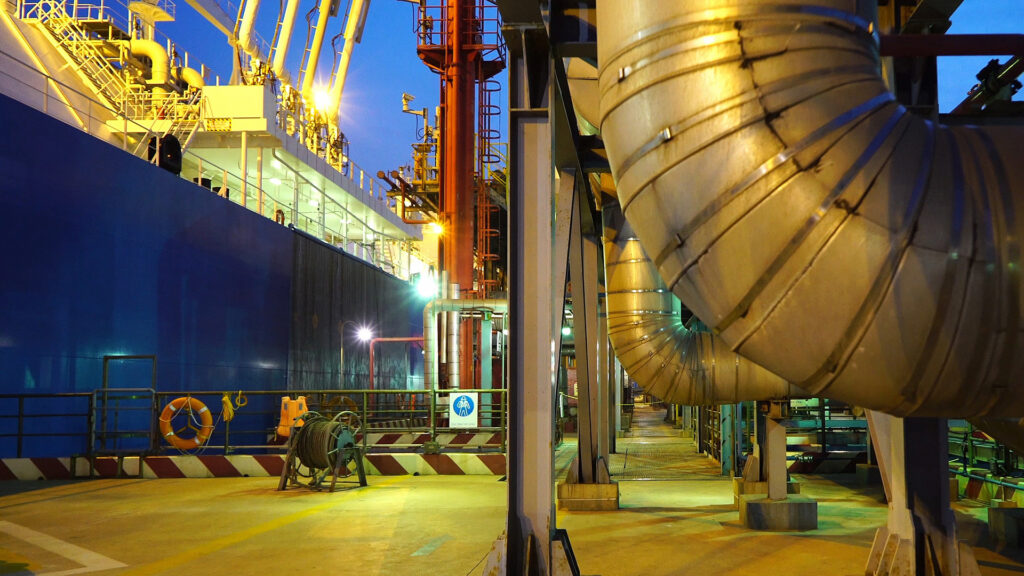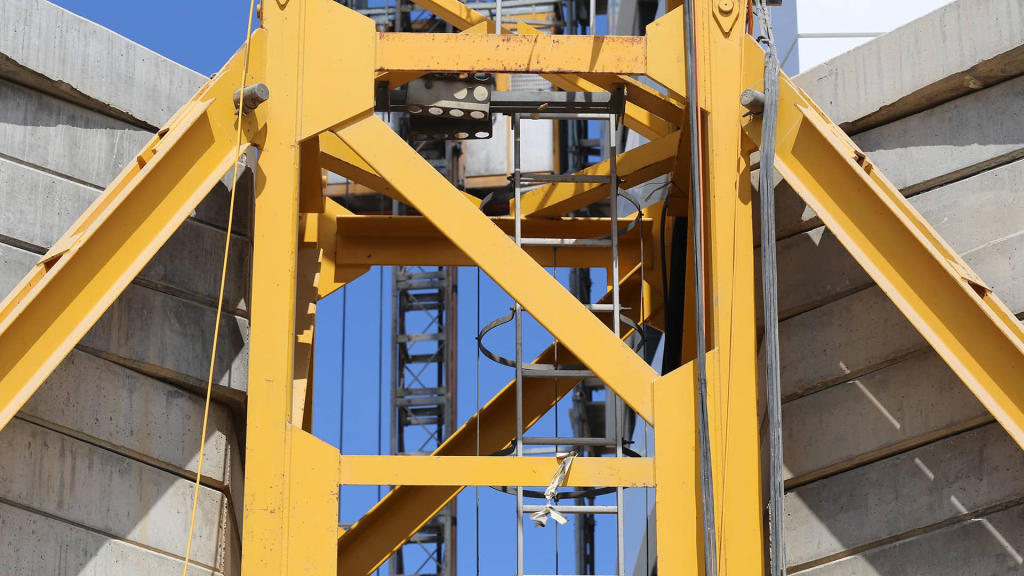Revision to the offshore construction policy
This article first appeared in the July 2012 issue of Middle East Insurance Review and is reproduced with their kind permission. www.meinsurancereview.com.
New international terms of insurance may soon be coming out in the London market which is likely to have a profound effect on any oil and gas company planning construction work in the Middle East moving forward. This will change the product landscape available to energy insurers and brokers active in this area. This is especially relevant to the Middle East given the vast number of energy construction projects currently planned in the region over the next five years.
Since 2009, the Joint Rig Committee (JRC) at Lloyds has been working on revisions of the standard 2001 Offshore Construction Project Insurance Wording (WELCAR). On 30 September 2011 the JRC released the new WELCAR wording into consultation with brokers, assureds, adjusters, International Marine Contractors Association and lawyers. Publication was due in January 2012 but has been delayed pending further consultation with the market, which is likely to result in further revision.
The aim of the new wording is to reflect ten years of underwriting experience on the basis of WELCAR 2001 and to improve the quality of the wording by bringing greater clarity and consistency through the use of more contemporary language. However, there are issues arising from the latest published wording, some of which may sound technical, but many of which could change the traditional cover in some ways which may go further than the Middle Eastern operators and their insurers might anticipate, and we have attempted to explain some of these below.
WELCAR 2001- well received by insurers
Although WELCAR 2001, the current wording, is not a perfect policy and has often been varied or extended by agreement, it are well established and remains the principal form used in offshore construction cover. Consequently, assureds, intermediaries and the market understand what it meant, which in turn provides a degree of certainty and stability, making it user-friendly, practical product. The form provides a breadth of coverage to meet the needs of the assureds, whilst providing built-in protections for insurers. It is also the basis on which assured’s contract with their contractors and sub-contractors on offshore projects. Whilst numerous issues as to coverage have arisen under WELCAR 2001, these have usually been resolved without recourse to proceedings, which is a reflection of the sturdiness of the product.
The new WELCAR wording runs to 59 pages, compared with 31 pages of the existing one. Generally speaking, the new WELCAR wording, whilst seeking to clarify matters, appears more restrictive of the coverage provided, making for a less generous policy for the assured.
We therefore outline below our comments on some of the proposed changes which we feel require careful consideration. This is not an exhaustive list, but includes what we think are the main changes.
Scope of insurance
The policy language has been strengthened with a new requirement that the list of activities covered under the policy must be included within “declared” values and the coverage for initial operations is no longer included in the these activities. This could cause problems unless all activities are properly listed.
Declarations
A limitation has been introduced so that those drafting contracts with “Other Insured’s” must expressly give the benefit of the insurance to them. This raises the possibility that some contractors may not be insured where an inadvertent error has occurred in not conferring the benefit or as a result of ambiguous language. 3. Definitions Although “Defective Part” is defined, “Part” is not. This has been the crux of issues in respect of the aspect of coverage and remains an issue.
General conditions
“Special Conditions Applying to Other Insureds”:
Clause A is restrictive in terms of cover for contractors during the “Maintenance Period”, during which time contractors will need to be careful to have their own cover for situations that may arise, but are not covered by this policy.
Clause B restricts cover for any “Other Insured” where “any act or any failure to act (whether before or after the Period of Insurance commences) by or on behalf of the Principal Insured which prevents recovery by the Principal Insured…or would prevent recovery”. This seems overly onerous, particularly in relation to actions prior to the commencement of coverage.
Clause D states that the rights of “Other Insureds” can only be exercised by a “Principal Insured”. This suggests that any failure on the part of the “Principal Insured” to comply with the conditions precedent could prevent cover for other insureds. This could lead to disputes between contractors and their sub-contractors.
There is a significant change under “Due diligence” as new duties in respect of due diligence and compliance are placed on the “Principal Insured”, their contractors and sub-contractors. QA/QC has been replaced by these clauses. These requirements could be very onerous and might require contractors to increase their own cover.
“Survey Requirements” are stated to be a condition precedent to liability. A compliance obligation is placed on the “Insureds”, meaning that a technical breach by any “Other Insured”, for example, has the effect of removing cover for all insureds. This is an extreme remedy leaving other insureds potentially insured.
“Notification Of An Occurrence Which May Result In A Claim” is now expressed as a condition precedent to liability and therefore breach of this will absolve insurers of liability. This is new.
“Waiver of Subrogation Rights” is removed where an “Other Insured” is not entitled to policy cover for an event of loss, damage, liability or expense. This waters down the hold harmless principles that are increasingly agreed between principals and contractors, and as such it is not a practical clause and will likely be rejected by assureds and contractors.
Section one
“All risks” coverage has been removed from the “Insuring Clause”, creating a limitation. It increases the burden of proof on “Insureds”.
“Minimising Losses/Additional Work Required” replaces “Sue & Labour” language under limited cover, but the costs to be borne by insurers are only for a proportionate amount and capped at 50% of the value at the time. The allocation of proportion across respective interests will be problematic. This clause also provides that insurers will not pay for the cost of “imminent Physical Loss of or Physical Damage” arising from a “reasonably foreseeable” cause. Imminent loss/damage must necessarily be reasonably foreseeable and whether something will be deemed “imminent” is a matter of fact and degree, which leaves scope for disputes.
As to additional exclusions, the exclusion of “costs of repairing, correcting or rectifying wear and tear, gradual deterioration, “scouring” is new.
Also, the Defective Part exclusion has been broadened to include “defect in plan or defect in specification”.
General
The new WELCAR wording has been produced with the best of intentions, and it was time to upgrade it. However, if this version comes in as it is or similar, it will have far-reaching effects for the insurance programmes of all energy operators and their sub-contractors in the Middle East, in relation to construction projects throughout the region and beyond.
Many people feel that the revisions amount to a rewrite of the policy wording which is much too long, proposes a considerably narrower form of cover, and with more hurdles to overcome to secure cover. It also significantly increases the scope for commercial disputes between contractors, for example where the fault of one sub-contractor leads to the complete loss of insurance cover for all the others involved in the project.
The inclusion of all the new conditions precedent makes it a much more onerous policy under English law, since a technical breach of any of these may result in a right for the insurer to terminate cover even where this did not cause any loss.
Changing the contract regime creates problems where existing projects are utilising WELCAR 2001, and uncertainty, since people prefer to use a tried and tested system.
There is therefore concern that energy companies and contractors in the Middle East and elsewhere may seek broader coverage elsewhere if further amendments are not made, and uptake of the policy will be limited. Following some strong criticism from potential users and an upcoming second consultation phase, we understand that the latest wording is likely to be substantially changed before becoming a settled wording. Nonetheless, the above gives an idea of the current status of WELCAR 2012 and the types of issue which can actually arise whenever a new wording is introduced.











